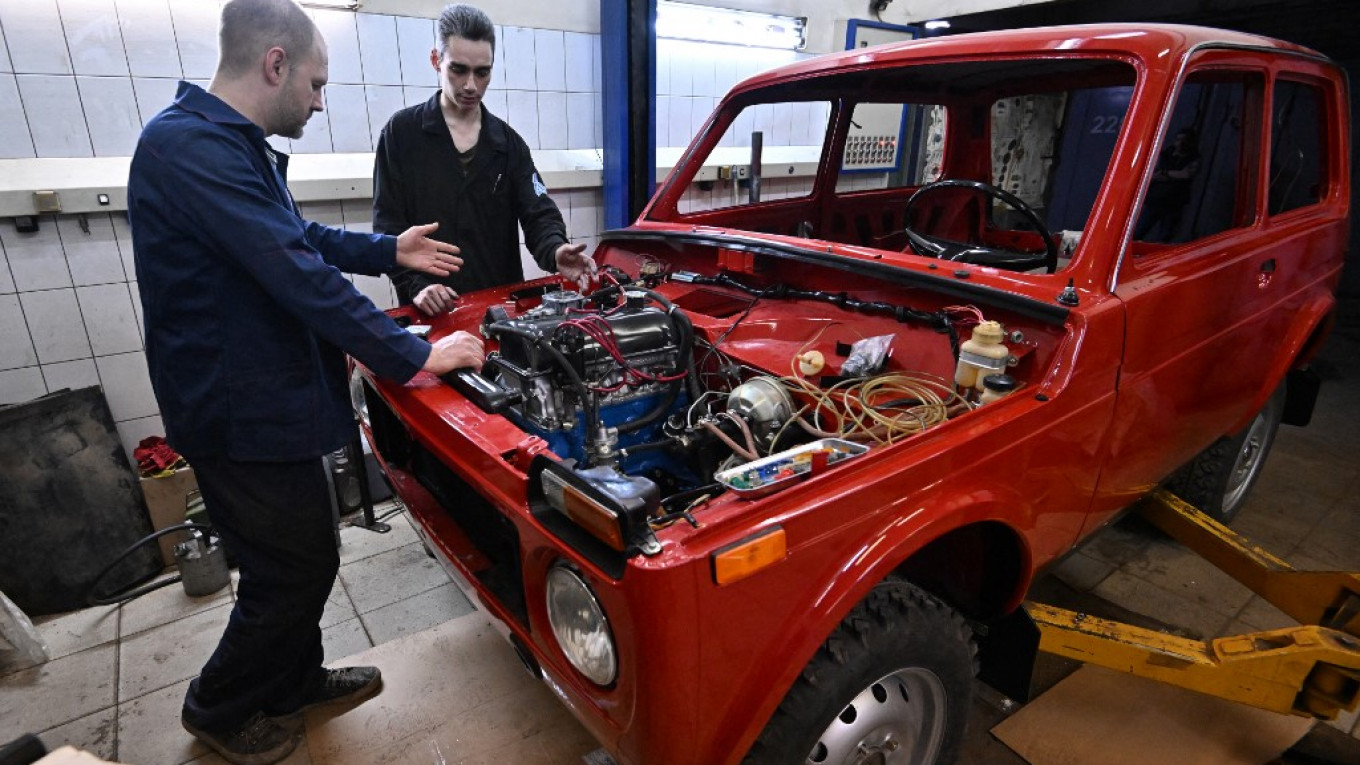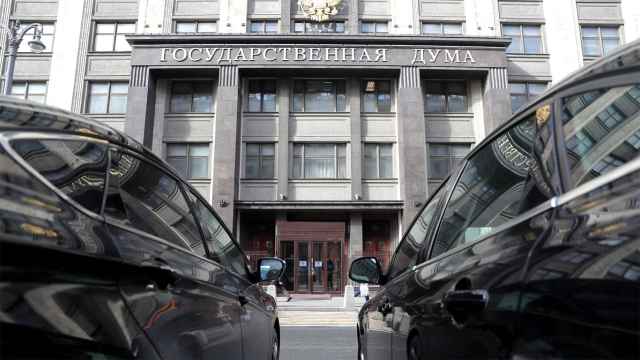For generations the Russian city of Tolyatti has been synonymous with leading car manufacturer Avtovaz, maker of one of the country's best-known brands, the Lada automobile.
But with the West piling sanctions on Russia over its military action in Ukraine, Tolyatti and the workers of Avtovaz are bracing for tough times.
Gathered in a small apartment in the city's Avtozavodsky district, a residential area surrounding the sprawling factory, several workers from the "Yedinstvo" (Unity) trade union said they were worried about their future.
"It's a factory town. Everyone here works either for the factory or for the police," said Alexander Kalinin, 45, a freight elevator operator at Avtovaz for 15 years.
Founded in the 1960s for the Soviet Union to meet the growing demand for affordable cars, the Avtovaz factory's flagship Lada vehicles became widely known for their simplicity and durability.
The factory was set up in the town of Stavropol about 780 kilometers (485 miles) southeast of Moscow, which was renamed Tolyatti after Italian Communist politician Palmiro Togliatti.
The plant survived the economic crisis that followed the 1991 collapse of the Soviet Union and was eventually taken over by French auto group Renault.
"For Tolyatti, the factory is everything. The whole city was built around it," said 33-year-old Irina Myalkina, a worker in the spare parts warehouse for 11 years.
"When I started, I was full of enthusiasm, I hoped for a good income. I still hope," Myalkina added with a sad smile.
'People are nervous'
Most of the factory's assembly lines stopped running after Moscow moved troops into Ukraine on Feb. 24 and sanctions meant it could no longer receive components from aboard.
Workers are on paid leave, with two-thirds of their usual wage, which for Myalkina means receiving 13,000 rubles (about $140) instead of her usual 20,000 rubles ($215).
Prices for food and other basic goods are soaring, in Tolyatti as elsewhere in Russia.
"People are nervous," Myalkina said.
After completing its acquisition of Avtovaz, Renault funnelled billions of euros into the Soviet-era factory, but also carried out huge staff cuts, leaving fewer than 40,000 workers out of 70,000.
"There were many problems with the departure of employees, but nevertheless there was a clear positive trend," said Andrei Yakovlev, head of the Institute for Industrial and Market Studies at Moscow's Higher School of Economics.
"A major Russian car manufacturer was being born."
Now its future is very much in doubt, with Renault, under intense pressure to boycott Russia, considering whether to withdraw from Avtovaz.
No one from the company would agree to talk and it even refused to give access to the Lada Museum in Tolyatti during a recent visit.
When AFP was filming near the factory, Avtovaz security called police, who questioned and released the journalists after several hours.
The factory's employees have been forced to take their three weeks of summer vacation in April, while Renault considers its options.
Second jobs
Many employees have already been forced to take up second jobs, like Leonid Emchanov, 31, a mechanic now moonlighting as a security guard to feed his family.
"I am the only one in the family who works. I have two children, my wife... is on maternity leave. I have to work two jobs, but even this is not enough," he said.
If Avtovaz is unable to survive this crisis, its demise would mark the end of an industrial era for Russia, and for its many Lada enthusiasts.
In an underground garage in Tolyatti, two men in vintage overalls were busy at work on an 80s Lada Niva, a legendary four-wheel drive vehicle, that was shining with a fresh coat of red paint.
"Since childhood, my whole life has been linked to the factory," said one of the mechanics, Sergei Diogrik.
"All our relatives in Tolyatti worked at the factory and I myself worked there. I had no choice, everything is related to the company," he added.
The 43-year-old founded and runs the Lada History Club, bringing together fans of the Soviet car from all over the world.
"It was a powerful producer. The record in the early 1980s was 720,000 cars per year," he said, compared to nearly 300,000 cars produced in 2021.
"It was fashionable to come here. Now the fashion is for young people to go to Moscow or somewhere else," Diogrik added.
He said he is trying to remain hopeful, pointing out that the factory and its workers already survived the economic hardships of the 1990s.
"A Russian person who survived the 90s, especially in Tolyatti, will cope now, everything will be fine."






